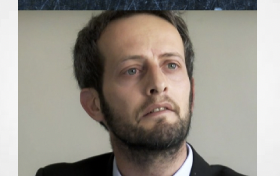Great story great lawyer
As the international community’s gaze remains fixed on the tenuous ceasefires in the Middle East, a groundbreaking legal battle is unfolding that could have significant implications for Israel’s Prime Minister Benjamin Netanyahu. This case, spearheaded by Omar Shatz, an Israeli lawyer now based in France, accuses Netanyahu and seven other prominent Israeli figures of genocide against Palestinians in Gaza. It represents a pivotal moment in international law and accountability.
The Allegations
Omar Shatz, alongside his students from the Paris Institute of Political Sciences, has submitted a 170-page dossier to the International Criminal Court (ICC). This filing accuses Netanyahu and other Israeli leaders of publicly and directly inciting genocide. The document is bolstered by evidence of genocidal statements and policies, particularly in the aftermath of the events of October 7, 2023, when the Israeli military launched widespread attacks across Gaza under the pretext of responding to hostage-taking by Hamas.
The accused include prominent figures such as former Defense Minister Yoav Gallant, current Defense Minister Israel Katz, and Israeli President Isaac Herzog, among others. The filing cites statements that dehumanized Palestinians, likening Gaza to Nazi Germany and justifying military actions as necessary measures.
Shatz’s Legal Strategy
Shatz’s pursuit of justice hinges on a principle called “complementarity” under the Genocide Convention, to which Israel is a signatory. This principle allows the ICC to step in when national courts fail to prosecute serious crimes. Israeli courts have repeatedly refused to bring cases against their officials despite international findings suggesting plausible genocide allegations. Shatz’s filing exploits this legal provision, asserting that Israel’s inaction has activated the ICC’s jurisdiction.
The principle of complementarity was designed to respect national sovereignty while ensuring accountability for the gravest crimes, such as genocide and war crimes. By bypassing Israel’s judicial inaction, Shatz has created a pathway for the ICC to investigate and prosecute Israeli officials, even though Israel is not a signatory to the Rome Statute, which established the ICC.
Historical Context
This is not the first time Shatz has confronted Israel’s judiciary. In 2014, he attempted to bring a genocide case against Yoav Gallant in the Israeli Supreme Court, citing actions during Operation Protective Edge. His warning at the time, that genocide would occur within a decade, now resonates chillingly with the current situation in Gaza.




